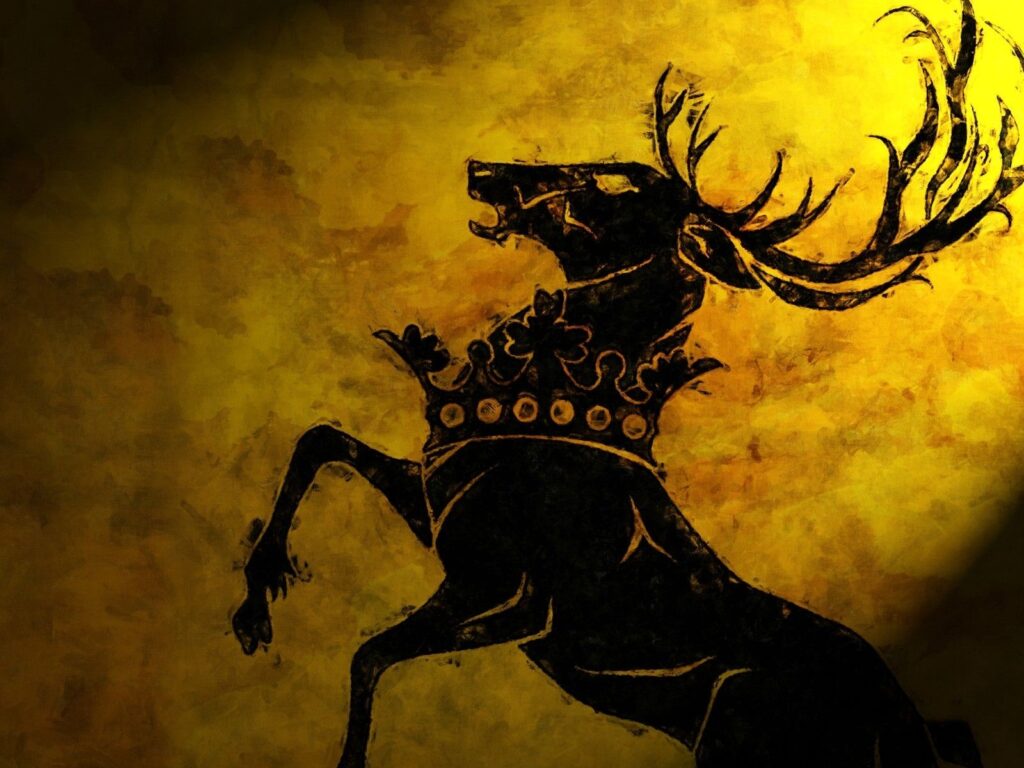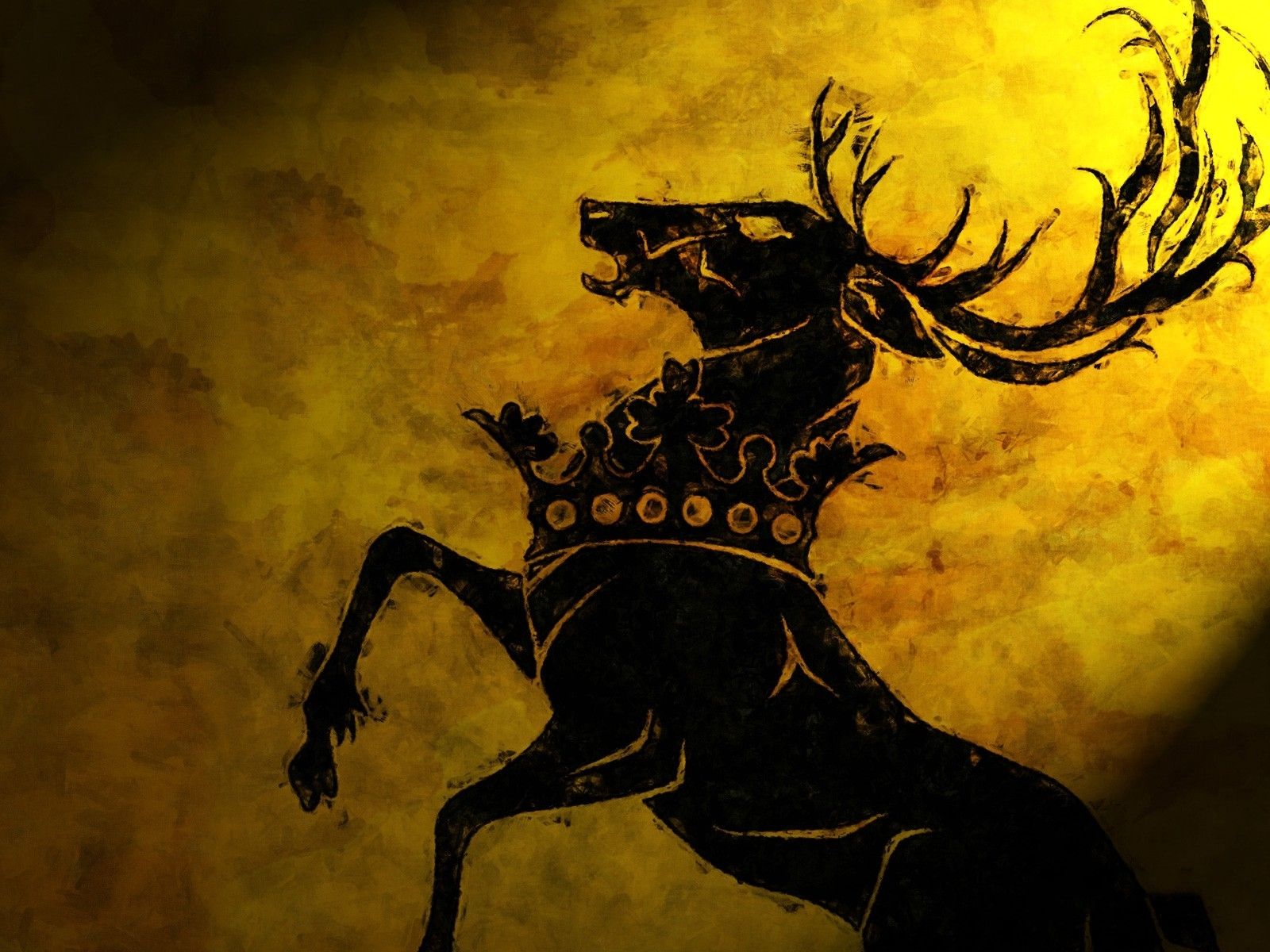
Robert Baratheon: The Hammer of Rebellion and His Tragic Reign
Robert Baratheon, the first of his name, is a pivotal figure in George R.R. Martin’s *A Song of Ice and Fire* series. His rebellion against the Targaryen dynasty reshaped the landscape of Westeros, ushering in an era of Baratheon rule. However, Robert’s reign was far from the glorious victory he envisioned. This article delves into the life, legacy, and ultimate downfall of Robert Baratheon, exploring the complexities of a king who won a throne but couldn’t rule it.
The Rebel Prince: Robert’s Rise to Power
Before he was king, Robert Baratheon was the Lord of Storm’s End, a charismatic and formidable warrior known for his prowess in battle and his captivating charm. His betrothal to Lyanna Stark was meant to solidify an alliance between two powerful houses. However, the alleged abduction of Lyanna by Prince Rhaegar Targaryen sparked a firestorm of rebellion. While the truth of the matter remains a subject of debate among fans, the perceived injustice ignited Robert’s fury and provided the catalyst for war.
Robert’s Rebellion, also known as the War of the Usurper, saw Robert Baratheon leading the charge against the Iron Throne. He forged alliances with key figures like Eddard Stark and Jon Arryn, uniting the North, the Vale, and the Stormlands against the Targaryen dynasty. Robert’s military genius and unwavering determination were crucial to the rebellion’s success. His victory at the Trident, where he personally slew Rhaegar Targaryen, cemented his place in history. Robert Baratheon became a symbol of freedom and defiance against tyranny.
Key Events of Robert’s Rebellion
- The abduction (or elopement) of Lyanna Stark: The event that triggered the war.
- The deaths of Rickard and Brandon Stark: King Aerys II’s brutal execution of Ned Stark’s father and brother further inflamed the rebellion.
- The Battle of the Bells: An early victory for Robert, showcasing his tactical abilities.
- The Sack of King’s Landing: A controversial event where the Lannister forces sacked the capital, leading to the deaths of the Targaryen heirs.
- The Battle of the Trident: Robert’s decisive victory over Rhaegar Targaryen, effectively ending Targaryen rule.
King Robert: The Burden of the Iron Throne
With the Targaryens overthrown, Robert Baratheon ascended the Iron Throne. He married Cersei Lannister to secure an alliance with the powerful House Lannister, although the marriage was loveless and fraught with tension. Robert’s reign began with promises of peace and prosperity, but the realities of kingship soon weighed heavily on him. [See also: The Reign of Aerys II]
Robert, a man of action and passion, found himself ill-suited to the intricacies of courtly politics and the mundane tasks of ruling. He preferred hunting, feasting, and whoring to attending to matters of state. This apathy allowed his Small Council, particularly Jon Arryn and later Cersei Lannister, to wield considerable power. The realm suffered from growing debts, corruption, and simmering discontent. Robert Baratheon, the valiant warrior, was slowly becoming a shadow of his former self.
The Challenges of Robert’s Reign
- The Targaryen threat: Viserys and Daenerys Targaryen remained at large, posing a potential challenge to his rule.
- The growing debt: The Crown was heavily indebted to the Lannisters and other powerful houses.
- Political infighting: The constant scheming and power struggles within the court undermined Robert’s authority.
- Robert’s disinterest in ruling: His lack of engagement in matters of state created a power vacuum that others eagerly filled.
The Seeds of Destruction: Robert’s Fatal Flaws
Robert Baratheon’s downfall can be attributed to several key flaws. His inability to move on from the past, particularly his obsession with Lyanna Stark, haunted him throughout his life. His marriage to Cersei Lannister was a political alliance devoid of love, leading to mutual resentment and betrayal. Robert’s reliance on others to govern allowed corruption and instability to fester. He was a great warrior but a poor king, and his choices ultimately paved the way for the War of the Five Kings.
Robert’s drinking and womanizing further eroded his health and judgment. He became increasingly paranoid and suspicious, fueled by the whispers of his advisors. His decision to make Eddard Stark his Hand of the King, while well-intentioned, proved to be a fatal mistake. [See also: The Role of the Hand of the King] Ned’s unwavering sense of honor clashed with the political machinations of King’s Landing, leading to his downfall and further destabilizing the realm. Robert Baratheon’s reign, once filled with promise, was spiraling towards chaos.
Robert’s Key Flaws
- Obsession with Lyanna Stark: Preventing him from truly loving Cersei or moving on with his life.
- Disinterest in governance: Leaving the realm vulnerable to corruption and mismanagement.
- Dependence on alcohol and other vices: Clouding his judgment and weakening his resolve.
- Poor choice of advisors: Surrounding himself with individuals who prioritized their own ambitions over the good of the realm.
The Boar and the Betrayal: Robert’s Untimely Death
Robert Baratheon’s death was a tragic culmination of his flaws and the machinations of his enemies. While hunting a boar, he was deliberately weakened with strong wine and then fatally wounded by a boar, an incident orchestrated by Cersei Lannister and her cousin, Lancel Lannister. His death plunged Westeros into chaos, triggering the War of the Five Kings and ultimately leading to the downfall of House Baratheon. Robert Baratheon, the king who overthrew a dynasty, was ultimately undone by his own weaknesses and the treachery of those closest to him.
The circumstances surrounding Robert Baratheon’s death are crucial to understanding the events that followed. The deliberate sabotage of the hunt highlights the depth of Cersei’s hatred for Robert and her determination to seize power. Robert’s final words to Ned Stark, tasking him with protecting his children, set in motion a chain of events that would reshape the fate of Westeros. The death of Robert Baratheon marked the end of an era and the beginning of a bloody and tumultuous period in Westerosi history. Robert Baratheon, despite his flaws, was a pivotal figure whose actions continue to reverberate throughout the realm.
Robert Baratheon’s Legacy: A King Remembered
Robert Baratheon’s legacy is a complex one. He is remembered as a valiant warrior and a charismatic leader who overthrew a tyrannical dynasty. However, he is also remembered as a poor king who failed to address the growing problems of the realm and whose personal flaws contributed to his downfall. His reign serves as a cautionary tale about the burdens of power and the importance of leadership. Robert Baratheon’s story continues to captivate audiences, reminding us that even the most heroic figures are not immune to human fallibility. Robert Baratheon’s impact on Westeros is undeniable, shaping the political landscape and setting the stage for the epic struggles to come. Robert Baratheon, the hammer that broke the dragon, will forever be etched in the annals of Westerosi history. Robert Baratheon, a name whispered with both admiration and regret.
The memory of Robert Baratheon persists, influencing the ambitions and actions of those who followed him. His illegitimate children, such as Gendry, carry his bloodline and potential claim to the throne. The legacy of his rebellion continues to inspire those who seek to challenge the established order. Robert Baratheon’s story serves as a reminder that even the most triumphant victories can be overshadowed by personal failings and the complexities of power. The tale of Robert Baratheon is a testament to the enduring power of *A Song of Ice and Fire* and its ability to explore the multifaceted nature of human character.

